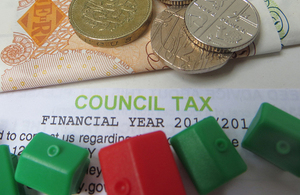Brits face a 4.3% council tax increase: money.co.uk offers advice on reducing monthly outgoings

Following the news that councils are dealing with budgetary black holes due to the impact of COVID-19, UK households now face an average 4.3% increase in council tax bills for 2021/22; Salman Haqqi, personal finance expert at money.co.uk, said:
“Receiving the news that extra cash will need budgeting for over the next 12 months is never a good thing. But after the events of the past year, these council tax hikes are just another additional pressure for those already struggling to stay financially afloat.
“The 1st of April was National Price Hike day, where the cost of living in the UK surged by an average of £206 for every UK household. In some instances, such as with an electricity bill, customers would’ve been notified in advance of the change – but the vast majority of price increases had either already happened, or came with no warning at all.
“Some of the incremental changes may seem insignificant, such as the 5p additional charge to a pint of milk or the 1% increase in the cost of a TV licence. That being said, the pressure to find an additional £206 per household will take its toll on some, and is hardly ideal given the particularly turbulent financial year many have had.
“Outlined below are some budgeting tips for anyone feeling concerned at the prospect of increased council tax bills, or simply looking for methods to reduce their monthly outgoings:”
Check your bills regularly: It’s always a good idea to check your regular household bills. Some companies, like energy providers, have been known to make mistakes when charging customers.
Keeping on top of your regular bills and outgoings has become more important than ever, especially as we continue to deal with the ongoing effects of the pandemic. With more people staying at home for long periods and working from home for the foreseeable future, bills for energy, water and mobile data may well be going up.
Understand your energy bill: They can often be written with a huge amount of confusing jargon, but attempting to understand the information related to your energy tariff and household consumption could help you lessen your bill. The personal projection on the bill is the amount your household is expected to spend during the next 12 months, and the tariff comparison rate figure will help you understand how much you’re spending per kilowatt hour of electricity and gas.
This information makes it easier to compare energy deals if you are planning to switch to a cheaper one, or help you keep a close eye on your current energy consumption.
Living alone? Make sure companies are made aware: If you currently live alone, but previously shared your home with a partner, family or housemates, there are ways to cut the cost of living that you may not be aware of. Firstly, living alone allows you to take advantage of a 25% discount on your council tax bill, saving you hundreds of pounds a year.
It’s also worth checking your benefits, as these are often based not only on your individual wage, but on total household income. If you now live by yourself, this could mean you’re eligible for financial assistance you’re not receiving.
Cancel payments for unused services: Now that the world is slowly beginning to open up again, it’s time to assess whether all those streaming subscriptions you signed up for during the peak of lockdown boredom are worth the monthly cost moving forward. Are you still paying for a gym membership that is barely being used? Time to cancel that monthly membership that’s draining a hole in your pocket.




